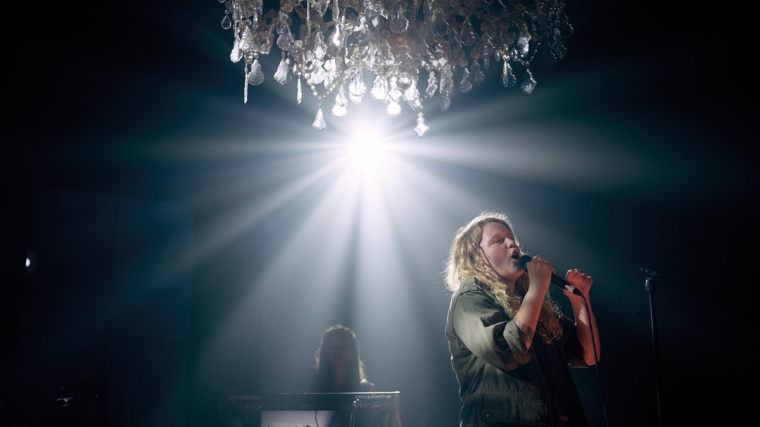Your voice is a weapon
06 Nov 2017

The love of verse. It’s not for everyone.
But with more than a million poetry books sold last year and a noticeable increase in spoken word artists on the scene; it would be difficult to argue there isn’t an appetite for the long-established art form.
Kate Tempest is one such artist making her voice heard.
Her 2017 Mercury Prize-nominated album, Let Them Eat Chaos offers a compelling take on modern Britain, with the entire album taking place on one street in London at 4.18am.
Politically charged and fuelled by carefully-defined fury, Tempest’s voice is a hard one to ignore.
Opening her set on Glastonbury’s West Holts stage back in June with ‘Strong and stable into ruin’, a comment on the Tory campaign slogan, Tempest’s performance was met with emotional praise, being described on Twitter as ‘the voice this generation needs’.
Hollie McNish is another performer and writer redefining contemporary verse.
With a number of viral videos under her belt and a YouTube account with over 4.1 million views, McNish is also the first poet to record an album at Abbey Road Studios.
‘I don’t know any other form that attracts people of all colours and genders, between the ages of 15 to 80’ says McNish of the spoken word genre. Her reservations of being labelled a ‘performance poet’ evident in her desire to branch outside the performance element of her work, with her most recent poetic memoir, Nobody Told Me picking up the Poetry Society’s Ted Hughes award.
A celebration of the love of language, and an impactful and powerful way of saying something that matters; the form’s roots live in rage.
‘I’m almost 60 and I’m still fucking angry’ says poetry veteran, Benjamin Zephaniah ‘everyone told me I would be mellow by now.’ Writing and performing poetry is that which allowed a young Zephaniah to escape a difficult background in Birmingham, where he grew up – leaving the city for London in his early twenties.
Another artist who refuses to be put into a box, Zephaniah’s career spans across many genres; with an impressive portfolio of poems, fiction, music and play works to his name.
But it is his poetry that has spoken to the masses; his revolutionary words, a product of his passion for injustice.
It was Zephaniah’s works that helped inspire another 2017 Mercury-Prize nominated artist, Loyle Carner.
Speaking with his hero about everything from art to dyslexia for The Independent this year, Carner says ‘I used to hate Shakespeare, it was only when I saw Romeo and Juliet in a production that I understood it, and I think that’s because I was experiencing it the way it was meant to be experienced. It’s the same with poetry.’
Carner’s debut album, Yesterday’s Gone is a creation motivated by family strife, a revealing insight into the 22-year old MC’s personal life. Described as ‘confessional hip-hop’ the final track on the album features the 22-year old MC’s mother reading a poem about her son over a piano sample played by his late stepfather.
Other rising stars include George the Poet and Yomi Sode; adding their voices to what is fast becoming a mainstream market.
Because poetry is now a universal calling for change.
Simple, re-active and hard-hitting; forms are fusing to push boundaries. And people are listening.
From potent pieces of political declaration such as Eminem’s most recent Donald Trump freestyle to cathartic tales of trauma like Rupi Kaur’s I’m Taking My Body Back; words are being used as significant and powerful tools, used to analyse, to reconsider - and in some cases, destroy.
The voice as a weapon.

Please login to comment.
Comments